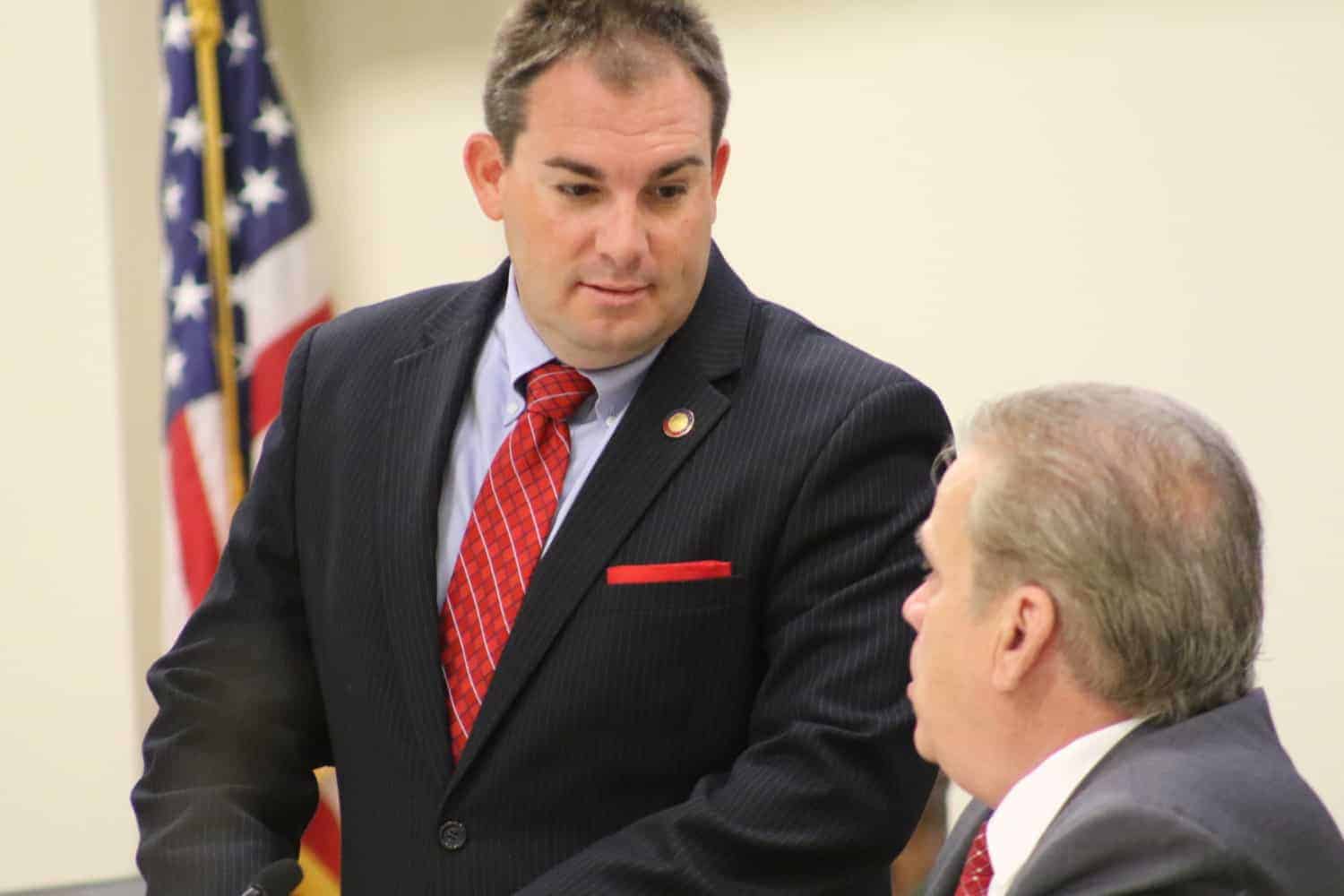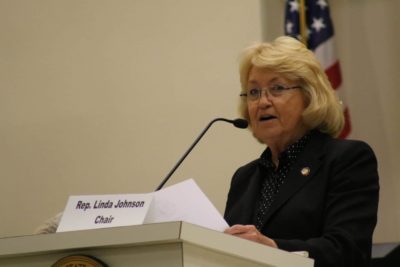School resource officers (SRO) across the state do not have mandatory training specific to their role. Legislators who have been addressing school safety concerns since February’s mass shooting in Parkland, Florida, want to change SRO training.
As part of the House Select Committee on School Safety, a working group focusing on the physical health of students passed policy recommendations Wednesday to require specialized training and continued education for school resource officers starting in the 2019-20 school year. The group also recommended $1.8 million to pay for resource officer positions in elementary and middle schools, required safety plans and drills for all public schools, annual vulnerability assessments for public school buildings, and annual reports from local districts on the number of school resource officers employed and how each is funded.
“I know that they come to the job having already done police work, but I think that there is a difference between what you do as a police officer and what you do as an SRO,” said Rep. Susan Fisher, D-Buncombe.
The draft legislation attached to the recommendation says the training would include both tactical and mental health training formed by The North Carolina Criminal Justice Education and Training Standards Commission, the North Carolina Sheriff’s Education and Training Standards Commission, and the Center for Safer Schools. Fisher said she wants training to focus on de-escalation and collaboration between officers and school personnel.
“I think school resource officers should be equipped to assist the educators in enforcing the rules on campus and it is not about escalating something into an issue that would result in an arrest,” she said. “It’s sort of a different mindset. And that’s what I want to be sure gets across in the training for those school-based officers.”
Rep. John Torbett, R-Gaston, a co-chair of the committee, said he was surprised, along with his fellow committee members, to find out additional school resource officer training was voluntary.
“They need to be … almost if not equal to specific training like a SWAT team would have, because you’re dealing with two things you don’t normally deal with as a normal police officer,” Torbett said. “You’re dealing with a very large facility and you’re dealing with a typically younger age population.”
The full committee is scheduled to meet May 10 to discuss recommendations from both the physical safety working group and recommendations from the working group focusing on student health. The committee was divided to look at the two issues separately. The committee is planning to continue to meet after, and possibly during, the upcoming legislative short session.
Torbett said focusing on the mental health of young people could prevent violent acts later in their lives.
“If we can help aid and assist those individuals at that early age, then maybe we can fix this,” Torbett said. “I don’t know.”
Five of the working group’s seven recommendations have proposed legislation attached to them. The other two suggest the committee delves deeper into specific issues, like allowing private schools to “develop protection policies in cooperation with law enforcement.” At the working group’s previous meeting, Joe Haas, executive director of the North Carolina Christian School Association, suggested private schools should be able to arm teachers after collaborating with law enforcement.
“It’s just common sense that not knowing who the marshals are at a school would be a deterrent to any person who might want to be an active shooter at a nonpublic school,” Haas said.
The working group also recommended the committee look further into what legislation is needed to establish and expand volunteer school resource officer programs like the one Rockingham County Sheriff Sam Page is starting. The program would recruit former police officers or members of the military to serve as school resource officers where funding for positions is lacking.
The full recommendations are as follows:
- “Study armed security options for nonpublic schools
- Study expansion and requirements of volunteer SRO program
- Extend mandatory safety plan and drill requirement to all public schools and encourage nonpublic school participation (Draft bill)
- Implement training and continuing education requirements for SROs (Draft bill)
- Appropriate $1.8 million to fund grants for SROs (Draft bill)
- Require facility vulnerability assessments for each school building (Draft bill)
- Require LEAs to report annually on SROs” (Draft bill)
Pitt County District Attorney Kimberly Robb presented to the committee Wednesday on statutory changes that would translate to harsher punishments for making an intentional threat on a school campus and illegally carrying or discharging a firearm on campus. Legislators were hesitant to vote on the proposed changes, saying they needed more time to understand different levels of charges and when a felony charge is necessary for a minor.
“It is a life-changing event,” Torbett said. “We want to make sure that if that tag is placed on someone, it’s because they have justifiably earned that and they have been summarily reprimanded and punished for that. It is a serious offense but what folks are doing to innocent kids in schools is also a serious offense.”
Rep. Michael Specialie, R-Beaufort, Craven, Pamlico, asked Robb if these harsher punishments would be able to prevent a mass shooting on a school campus.
“Perhaps if somebody knows they’re going to be charged with a felony, I mean, honestly, nothing in this can prevent that,” Robb said. “If somebody doesn’t care about a felony charge, then it’s not going to make a difference.”



